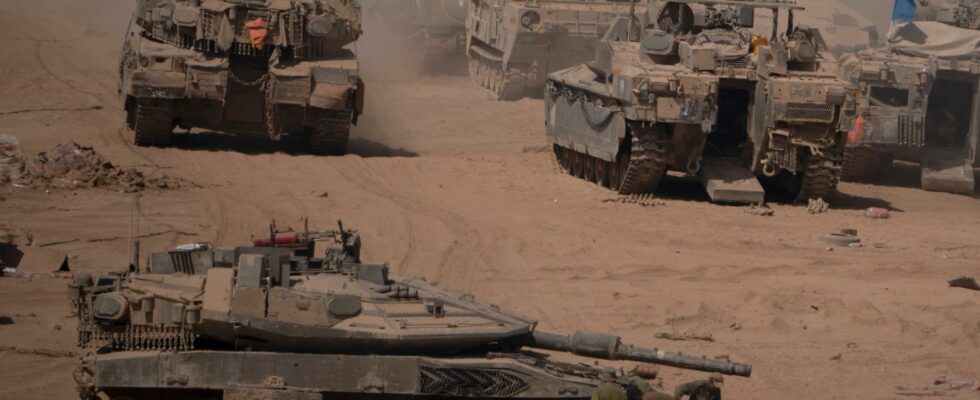unsaveSave
expand-left
full screen Israeli forces near the border with Gaza. Archive image. Photo: Leo Correa/AP/TT
It was said to be close, but an agreement on a ceasefire in the Gaza war is further delayed.
The warring parties accuse each other of preventing the final step.
On Tuesday evening, it was announced that Hamas, branded as a terrorist, had submitted an official response to the mediators regarding the ceasefire proposal that is on the table and that has been put forward by the UN Security Council. But the response is reported to contain some changes compared to the original proposal.
Hamas sources tell the newspaper Haaretz that they have accepted the proposal for a ceasefire according to the Security Council’s decision. According to Hamas, it is “Israel that does not accept the proposal and the United States that avoids it”.
According to the US, Israel has approved the original proposal – but no such announcement has been made by the Israeli government.
The ceasefire talks gained new momentum after the UN Security Council on Monday evening adopted a resolution calling on the parties to accept the proposal fully and unconditionally.
An Israeli source tells several media that Israel has received the response – and that the changes that Hamas wants to pass apply to several key points, including the part that deals with how the hostages that the terrorist group took during the act on October 7 are to be released. According to other sources, the proposal has also changed regarding Israel’s military withdrawal – which, according to the proposal, should take place from densely populated areas – and the timeline for it.
FACTS First six-week truce
The ceasefire proposal on the table consists of three phases.
The first applies for six weeks and involves a complete ceasefire, the withdrawal of Israeli forces from “all populated areas of the Gaza Strip” and the exchange of a number of hostages for hundreds of Palestinian prisoners.
Phase two is dependent on the parties first agreeing on “necessary arrangements”. But if that happens, it would mean a permanent end to the fighting, the release of all remaining living hostages and the withdrawal of all Israeli forces from the Gaza Strip.
In the third phase, the remains of hostages who are no longer alive must also be returned and a comprehensive reconstruction plan launched.
Read more
